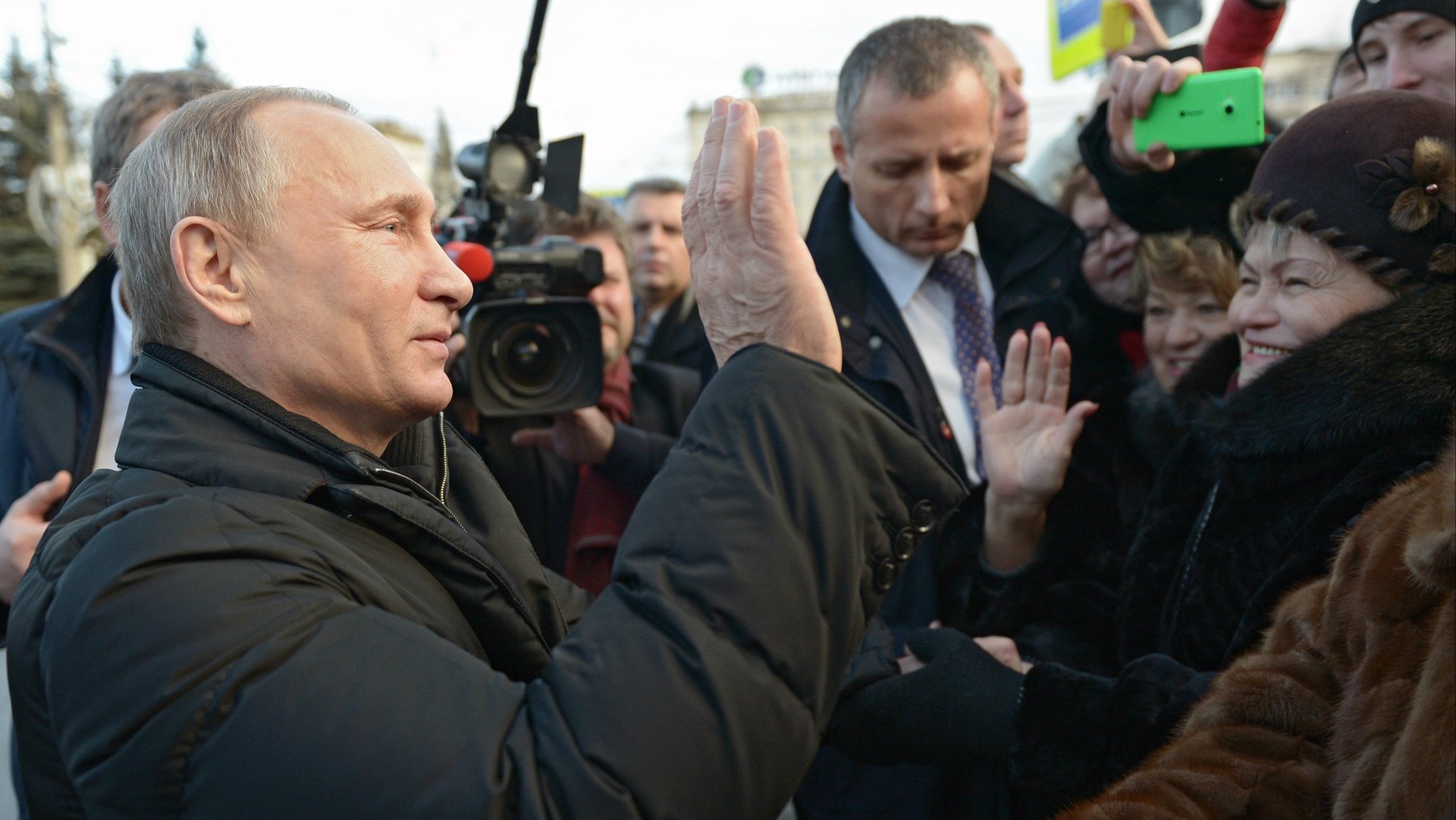Dealing with Putin means understanding that, like all great politicians, he’s a terrific actor
Turkey’s downing of a Russian warplane on Nov. 24 is already causing aftershocks: Russians in Moscow have broken the windows of the Turkish embassy; the Kremlin has halted trade with Turkey; and Russian president Vladimir Putin has deployed missiles to shoot down any planes threatening Russian jets in the future.


Turkey’s downing of a Russian warplane on Nov. 24 is already causing aftershocks: Russians in Moscow have broken the windows of the Turkish embassy; the Kremlin has halted trade with Turkey; and Russian president Vladimir Putin has deployed missiles to shoot down any planes threatening Russian jets in the future.
As a result, western diplomats are worried about a setback to political talks they hope will bring an end to the Syrian civil war. If Putin is sufficiently upset, the thinking goes, he might just walk away. But such concerns are unwarranted: The preternaturally hardboiled Russian leader isn’t genuinely offended at Turkey, nor has he taken the plane attack personally—he understands that, like him, Turkey has perceived national interests and was simply acting on them.
After all, this is a man who over the last seven years has unsentimentally annexed the territory of two neighbors; delivered a surface-to-air missile system to Ukraine separatists who then shot down a Malaysian airliner with 298 people aboard; and whipped his people into a nationalist, racism-tinged fury against alleged universal wrongs to Russia.
In none of these or other, similar cases was Putin’s primary driver umbrage toward his neighbors—as some have argued (video)—or indignation over an alleged attitude of western disrespect toward him and Russia. Instead, since rising to power in 1999, Putin has been driven by a cut-and-dried appraisal of what’s best for the Russian state.
What we’re witnessing is a core dimension of Putin’s own, self-cultivated image as a combination of Rambo, James Bond, and Peter the Great (along with implicit scorn toward any counterpart seeking philosophical overlap with Mother Teresa or Nelson Mandela.) He has to stick out his lower lip, be seen as operating stealthily behind the scenes, and yet always, always be noisily seeking the glory of Russia.
Not that Putin wasn’t at least in part shocked by the downing of the SU-24. But to the degree that he was, it was likely Casablanca shock—though Russian jets have been transgressing NATO borders and buzzing its aircraft and ships for some two years, it’s only now that someone has had the temerity to do something about it.
In other words, he’s acting.
http://24.media.tumblr.com/c610ccb8d9adf6b5901d4d51aa67e005/tumblr_mimq9qezIB1r71gs5o1_500.gif
So, if past is teacher, what to keep in mind if you happen to be a western diplomat or national leader?
The first point, as Hannah Thoborn argues in another context at Reuters, is that Putin will be instinctually disposed to turn the Turkish crisis to his advantage. This means leaders should push back against any slippage in the long-shot Syrian talks (this also applies to Turkish president Recep Tayyip Erdogan, who shares Putin’s theatrical flair). To Putin, this is simply a matter of realpolitik.
Don’t be disposed to becoming wobbly on Ukraine policy, either, if you are thinking about throwing Putin a bone with lenience on sanctions. There are truly no good guys in the Ukraine crisis (which is again heating up), but equally no good to come of backing down on the forcible shifting of national borders. Whatever he says publicly, Putin will understand a steadfast posture.
Finally, get your definitions straight. When Putin calls westerners his “partners,” that doesn’t suggest the English meaning of “ally” or “friend.” He means “person with whom I am close at the moment to get what I want.” The silver lining for his current western allies is that Putin will find no fault with foreign counterparts who behave the same.